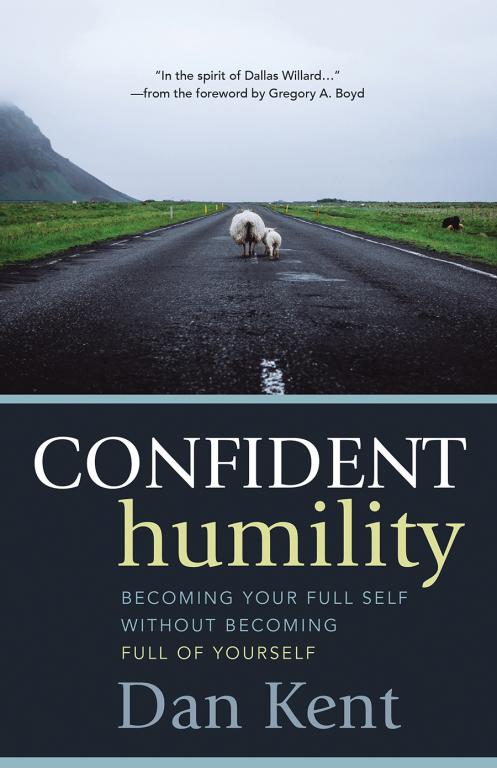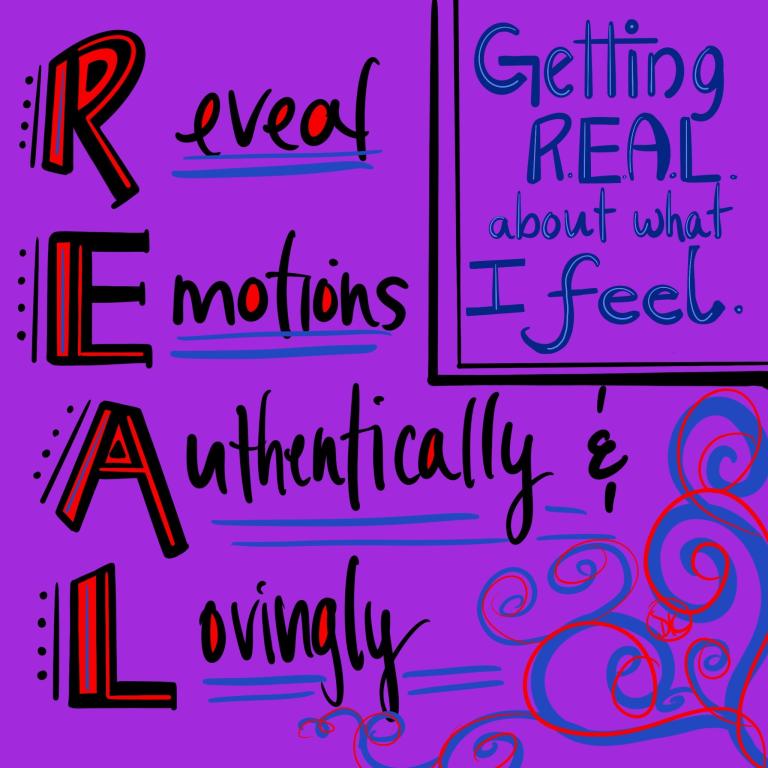
Have you ever read a book that compelled you to look at what you have been practicing and think to yourself, “Oh shit! I have been doing it all wrong”? For me, Confident Humility by Dan Kent, is that book. In order to become your full self, you have to resist that urge that justifies becoming full of yourself. How do you do this? By practicing confident humility- a third option. An option that most of us have seemingly already been introduced to but fail to put into proper practice.
A Tale of Two Ditches
Kent takes us through a tale of two ditches, the Ditch of Smallness and the Ditch of Bigness. The Ditch of Smallness reflects the idea that nobody gets a trophy; whereas the Ditch of Bigness reflects the idea that everybody gets a trophy.
Now, before you assume, like I did, that this book would speak to a possible tension of the two- finding a balance between two ditches- let me stop you right there. As Kent points out, “you can’t be in both at the same time.” These are ditches we are talking about. If you are in one, you cannot be in the other. “And once you start into either, it’s easy to end up at the bottom.”
Notice how a ditch can be a barrier in some instances but also a trap in other instances. A ditch can be protection from a tornado but quickly become a rapid flood of rising waters. Either way, getting back out of the ditch is sometimes the most difficult challenge. Kent warns of the danger of the paths:
“The Ditch of Smallness and Bigness both lead us down the same stale spiritual paths. They both cultivate passivity. They both foster powerlessness. They both nourish the soil of oppression…they promote shame and arrogance.”
The problem is met with the Good News, however. But first, the bad news- the ditches.
Smallness & Bigness
The Ditch of Smallness considers pride “Enemy Number One, our nemesis, the supervillain we must work to avoid at all costs.” It is in this ditch that we “abnegate, minimize, diminish, and deflate ourselves, keeping our self-appraisal sober and always focused on the negative.” We essentially keep record of sins in this ditch. We count our own sins against us and reduce ourselves- we are lowly worms. It is not us that are doing anything good, it is God who does it through us or for us. But we dare not take the credit. We are so unworthy.
The Ditch of Bigness considers shame the enemy. Team Bigness demands that we celebrate ourselves, that we view ourselves as “fundamentally good” and that “selfishness, hatred, and destruction are not our natural state.” What’s more (and truly a shock to my own system) is that, as you travel along the Ditch of Bigness, you will hear “gurus, therapists, and life coaches flatter you with grandiose assessments of your greatness. You’ll be encouraged to trust your intuitions and told that everything you need to be great resides somehow inside of you. They’ll try to convince you that the only thing keeping you from a vibrant and healthy life is negativity and a failure to understand how great you really are.”
Wasp Stings and a Slap to the Face
Here’s where I had to pause and reflect, deeply! Last summer, I spent 12 weeks working with a life coach that encouraged me in this very same way. It was like the sting of a thousand wasps. This was the first shock to my system. These very necessary words gave me an electric jump-start. For over a year, I have been telling myself, as a daily affirmation: “I am enough as I am.” It was a call to action for myself to keep my focus on positivity. But as Kent so eloquently argues, this way of thinking can actually thwart growth and all potential for change.
“Our job, according to Team Bigness, is to seize back authority and to defy all shame. This is not easy. We’re constantly surrounded by psychological gravities trying to pull us down. To combat this, we must constantly replenish our mental helium, working diligently to prop up the self, to inflate self-confidence, and to keep ourselves above all self-doubt.”
While I was working with a life coach, I went through so much mental anguish trying to talk myself into a positive attitude on days where I just didn’t have the mental strength to get dressed, let alone positively embrace my day and repeat my daily affirmations. Some days, I loathed my coach and shamed myself- despite the anti-shame messages I was inundated with. Some days, I just couldn’t understand how a person never had a case of the Mondays.
Not for nothing, but there were days where I really knew I was not enough as I was. I had reacted instead of reflecting and responding. I was short-tempered, self-righteous, and downright egotistical. I could feel a narcissism growing within. A friend had told me that when one is concerned about being narcissistic, that was a sign that I couldn’t be. So, how could I feel the way I did if I was going through all of the motions as instructed?
In short, because only looking at the positive things in our lives is wholly dismissive of the negativity that will most definitely occur in our lives as well. Using Paul’s words from Philippians 4:8, Kent points out the conditional language utilized in the verse:
Paul tells us, “Whatever is true, whatever is noble, whatever is right, whatever is pure, whatever is lovely, whatever is admirable- if anything is excellent or praiseworthy- think about such things.” But notice the conditional language Paul uses. He tells us when to think about positive things. He says “whatever is true” or “if anything is excellent,” then “think about such things.” Paul is reminding us that there really are good things-God’s creation is amazing! – and that we need to dwell on these things. Paul is preaching gratitude, which is very different from positivity. Gratitude encourages an appreciation for things that are already there but need to be recognized. Positivity is a conjured feeling no matter what is actually there.
When we just go through the motions, when we conjure up positivity even if we are not feeling it, we are being inauthentic. As Kent continues, “The more we pretend to be positive, the more we lose touch with who we really are. In fact, for many in the Ditch of Bigness, it’s a slap in the face. Losing touch with who we really are is the major crisis they’ve been trying to avoid all along-it’s what started them on this ridiculous journey to begin with!”
More wasp stings. A slap in the face hardly covers what I was feeling inside as I read these words. And yet, how very necessary these words were for me at the moment I read them.
The Road of Humility
“Good news! There really is another way, a way that extends before us like a road between these two ditches. An answer exists that secures us, empowers us, and deactivates both shame and pride in our lives, while also making real confidence possible.
The answer is humility.
More specifically, the answer is “humility as Jesus teaches it.”
Kent calls this answer- this road, “The Road to Security”. The junction to this road begins by understanding that, despite what we may have been told (sold), humility is not the opposite of pride. A foreign concept to many of us. Kent reveals that shame, not humility, is the opposite of pride. And although at first reaction, many of us want to push back and say “but wait a minute, that’s wrong”, his case is sound, but more importantly, it’s not reasonable, it’s safe for consumption. It merely requires a little marinating. I understand the impulse to proffer an insta-reaction, but allow time for reflection.
A syllogism properly presented demonstrates why pride cannot be the opposite of humility. A form of deductive reasoning that cannot be so easily argued away.
In the pages of Confident Humility, Kent demonstrates that it is Jesus’s contention that pride and humility are not opposites.
“The first thing we learn from Jesus is Matthew 23 is that humility cannot be the opposite of pride… Yes, pride is bad, and Jesus exposes the pride of the Pharisees: They wanted the important seats at the synagogues and to be addresses by important titles (Matthew 23:6-7). It doesn’t take a genius to understand that being given these supposedly important things might compel a person to believe they, themselves, are somehow more important, more valuable, or better than others. And this, Jesus teaches, is the gist of what pride is: to view yourself as better than others.
But then Jesus blows everything up. He adds a profound twist. It’s also destructive to consider yourself below others. Jesus says both stop putting yourself above others by receiving pride-inducing titles (“you are not to be called ‘Rabbi’”) and stop putting yourself beneath others by giving pride-inducing titles (“do not call anyone on earth father” or teacher, rabbi, coach, pastor, CEO). We know the titles themselves don’t concern Jesus since Jesus uses them elsewhere. In fact, even right here in this passage he refers to the Pharisees as teachers. So, the titles aren’t the real issue. Jesus is diagnosing a deeper sickness. Namely, the sickness of believing yourself to be more-than or less-than others, and titles, seats in synagogues, special uniforms, and private parking spots are the artifacts of life this sickness feeds on.
Jesus agrees…that pride is unholy. But then challenges them: the opposite of pride is also unholy. And if the opposite of pride is unholy, then it should go without saying that the opposite of pride cannot be humility.”
Kent further adds that, from a psychological view, the opposite of pride is shame. Humility cannot be “synonymous with shame.” “Biblical humility is not ‘self-accusation, self-disparagement, or wallowing in cringing feelings of inferiority.’”
Kent then juxtaposes the idea that humility opposes pride in the same way that philosopher James Kellenberger’s war analogy illuminates how pacifism opposes war itself. In that pacifism cannot be “a balance between winning a war or losing a war,” humility cannot be the “balance between shame and pride, but something altogether different from whatever begets both.”
Esteemating
Confident Humility introduces to us a new term, one that forces us to look at shame and pride as a mathematical calculation. A term that Kent calls “esteemating”.
“Shame and pride are mathematical. Arriving at either involves a calculation…I call this underlying math esteemating, and we all do it. Esteemating happens deep within our operating system, working under the surface, always calculating, always nudging us with results, making us cower when the results are negative, inflating us when the results are positive.
The same machine produces both shame and pride. This helps us understand why a given person can appear to have both simultaneously. ‘If I search around long enough,’ notes Terry Cooper, ‘I’ll find insecurity beneath my grandiosity and arrogant expectations beneath my self-contempt.’”
Kent’s s well-defined concept of esteemating is something we have all seen. Take his example:
“We’ve seen people with grandiose opinions about their own greatness simultaneously exude self-pity and even lobby others to have pity for them.”
Trump, for example, in my opinion, models this very behavior. It’s a form of manipulative empathy- a “Dark Side of Empathy”. I wrote about it a few weeks back.
Continuing with the example: “We’ve also seen persons beaten down by their own suffocating self-contempt be bombastically judgmental of others.”
The many public examples I could present to exemplify this sentiment are too lengthy for just this blog.
The Delusion of Inequality
What causes us to esteemate? Kent provides another compelling display of reasoning to explain the temptation of esteemating: “The delusion of inequality causes us to esteemate.”
“The delusion of inequality is no different. To whatever degree we esteemate, we become self-obsessed…We want to be liked, and it matters to us how others assess us. So we downplay our troubles (“I’m fine) and exaggerate our accomplishments (“Proud Parent of a Bassoon Player”). We name-drop and strategize everything we say for a desired effect. And if the insecurity of esteemating becomes intense enough, we may even tell lies. In this way, esteemating turns everything into a crisis. There is much at stake.”
Kent further opines about the ways in which we keep score, but the way in which we keep score changes. What we did before no longer means anything at all. We are a society of people who have to constantly better ourselves and improve lest we be left to the wayside of irrelevance.
Most unfortunate is that “every positive quality must be guarded and promoted. We attend to them all and fight to secure them. We become captain of a ship with many leaks, forcing our attention to our boat instead of our journey. It’s exhausting.”
Our journey takes longer to reach the destination because we are stopping at all the market stands to take selfies and show everyone else how righteous we are for stopping to shop locally and give patronage to “the least of these”. Or, maybe that is what I liken it to anyway.
Likewise, the Pharisees with their phylacteries and long robes must be guarded and promoted, as though the material items they display are the focus of the very Good News messages that they carry around in the boxes strapped to their heads.
All of this is to say that we ourselves create inequality by the way we puff ourselves up as to be accepted by others, and therefore seen as better-than others.
“The world was already saturated with inequality long before we were born into it… From an early age, inequality is assumed in everything we learn. It’s whispered in our ears on television and on the internet. Invisible and unvetted teachers sneak it into our system…We accept the proposition that some people are better than others long before we have the cognitive capability to criticize it. And this uncriticized narrative grows, evolves, and we don’t even flinch when we hear ridiculous things, like, ‘You can tell he’s a good man. He has a good, firm handshake.’ The delusion of inequality churns out preposterous principles like this, and something as inane as a handshake can devolve into a farcical inequality filter, implying some strange ladder of men, distributed up and down based on how hard their hands can squeeze. There’s nothing wrong with a firm handshake, but if you’re using someone’s handshake to measure the quality of their character, you will end up dismissing saints and thinking highly of fools. There are, I have found, and abundance of muscular fools.”
We’ve seen both extreme and moderate versions of this play out in real face-to-face dialogues, on social media forums, and even as we watch our nightly news. Virtue signaling comes to mind.
“If you’re not a vegan, it’s because you don’t care about animals. Vegans are the moral ones.”
“If you don’t support abortion, you don’t support women. People who don’t support women cannot be good people.”
“If you don’t stand against abortion, it’s because you don’t value babies.”
“She only feeds her baby organic food. You can tell she is a good mom.”
More often than not, clinging to the delusion of inequality and believing that there are others who are just better-than the rest, leads to logical fallacy after logical fallacy. Not only that, but more importantly, it’s nowhere near humility.
The Road Continues
The road continues on. The road to transformation leads to the road of empowerment, leads to the road of confidence, and finally, to the road of social vitality.
The road to social vitality begins by recognizing a truth. An important truth that Kent unpacks. “Almost all mental health and spiritual health is relational.”
In explaining why psychology is social, Kent paints us a picture:
“What if you were the last person on earth? Say you wake one morning alone in the world, with no cars on the streets, no planes in the skies, and no personalities cackling on social media. Nobody. Anywhere. Where did they go? You don’t know. Maybe they were abducted by aliens. Maybe they were raptured.
You’d have many questions, certainly. For our purposes, I want you to ask this: How would it change the way you view yourself? Think about this honestly. Would you fix your hair each morning? Would you suck in your gut throughout the day? Would you feel as much anxiety about that big zit on your face? You wouldn’t care about such things, would you?
Really, all of our weaknesses and flaws, which pester us in this world of others, wouldn’t bother us much at all. Psychology is social. Shame and pride, esteemating and humility, are all socially indexed. They have to do with how we view others and how we think others view us.
Even self-worth is relational. In a world of others, we want to be accepted, and this acceptance is the primary currency of self-worth. When I ask if I am worthy, what I am really asking is whether I am acceptable to others.”
But a Tiny Critique
It is here that I break from agreement with the author. I applaud his observation that the acceptance we are seeking is really love. But it is his contention that a particular love, a higher love, a superior love- “but not just any love”, will stabilize us. While I appreciate the acknowledgment of the distinctions the Greeks placed upon the varying degrees in which one can measure love; I find error in supporting the notion that Agape– this superior love, the love of God- is the opposite of phileo (love of friend), storge (love of pets), eros (love of lovers).
It is my contention that eros is a very fundamental form of love that should not be so eagerly dismissed because it is a love that is “emotion-based and reactive.”
Kent argues that “Agape is proactive.”
“We choose it. It exists because we call it into existence, not as an automatic reaction or as the result of circumstantial correlation. In fact, we may not even really like the person we have choose to agape. And since it exists purely from my choice, and not on the merits of the other, it is the purest of all loves.”
He then says that “Agape can result in emotion but its fundamentally emotionless. It does not swell and deflate like emotional loves always do. Agape is not sentimental. In fact, it has very little to do with our inner experiences at all. Rather, when we have agape for another it’s for the sake of that other. Thus, agape is an other-oriented love.”
I disagree. I do not believe that eros cannot be an other-oriented love. I think eros hinges on fully actualizing kenosis, which is itself, other-oriented.
Eros & Error
Here, Kent echoes a similar prescription of understanding as that of Protestant theologian Anders Nygren; whereby Nygren pronounced that “eros is man’s way to God; agape is God’s way to man.” It was in The Meaning of Mary Magdalene: Discovering the Woman at the Heart of Christianity, Episcopalian priest Cynthia Bourgeault clarifies this erroneous (mis)understanding.
“According to Nygren, eros is by its very nature filled with desire and neediness, hence impure; by contrast, God’s way of loving is free, clear, and impartial, motivated only by the goodness of the giver.
With one deft stroke of the theological scalpel, Nygren essentially divided the core energy of love into two separate species and assigned erotic love (the only love humans are by definition capable of) a permanent second-class status that essentially negates its values as a spiritual path. It is hard to escape the implication that if one is following a path of passionate commitment to a beloved, one is on an inferior spiritual track, or no track at all. This despite love’s unassailable record as the most potent force at our disposal to unify the heart and transform the soul.”
Bourgeault then points to John Climacus who wrote in the 6th century:
“I have seen impure souls who threw themselves headlong into physical eros to a frenzied degree. It was their very experience of that physical eros that led them to interior conversion. They concentrated their eros on the Lord. Rising above fear, they tried to love God with insatiable desire. That is why when Christ spoke to the woman who had been a sinner he did not say that she had been afraid but that she had loved much, and had easily been able to surmount love by love.”
It is dangerous to separate and distinguish one form of love from the other, because it leads one to believe that one form is higher or lower. Bourgeault warns that it “is bad theology and even worse metaphysics.”
“For the great secret of erotic love- which all true lovers instinctively know and which I believe Jesus also knew is that agape is in essence transfigured desire. There are not two loves, one agape-based and the other eros-based. Rather, agape is what emerges from the refiner’s fire when that surging desire to cling, possess, consume the object of one’s adoring is subjected to the discipline of kenosis, self-giving love. One could almost express this as a simple mathematical formula:
A = E x K
In which A is agape, E is eros, and K is kenosis. The greater the degree of eros present and the stronger the practice of kenosis, the greater the magnitude of transfigured love thereby revealed.”
Here we have two compelling mathematical equations to wrestle with as we end Confident Humility. One hardly cancels the other out. It is not so much that Kent necessarily purports Nygren’s theology so blatantly, more so that it dismisses the importance of eros altogether. If anything, I would merely urge Kent to consider a wider scope of eros.
The conclusion presented by Kent is not interrupted by this theological mishap. Kent is clear, and the rest of his premise is still intact:
“God commands us to be humble because humility reflects reality and is the necessary precondition for becoming agape lovers. We are made to be agape lovers, which is why agape love nourishes our spirit like nothing else can. As agape love grows, so does the reality of unity.”
Despite my dismay with the topic of eros, I highly recommend this book. It is a must read. In the same way that Cynthia Bourgeault, Thomas Merton, Leo Tolstoy, Simone de Beauvoir, Greg Boyd, and Richard Rohr have all electrified my core, compelling me to dig deeper into my soul; Dan Kent’s Confident Humility joins the ranks as one of the most inspirational and life-changing books I have ever read. I am grateful for such a contribution.
Dan Kent is editor-in-chief at Reknew.org, was born to a fourteen-year-old mother in the humorless tundra of northern Minnesota. He wrote his first novel at twelve, went to college to figure out if God exists, and has worked in crisis mental health for twenty years.
Confident Humility is now available. You can purchase it here and here.












